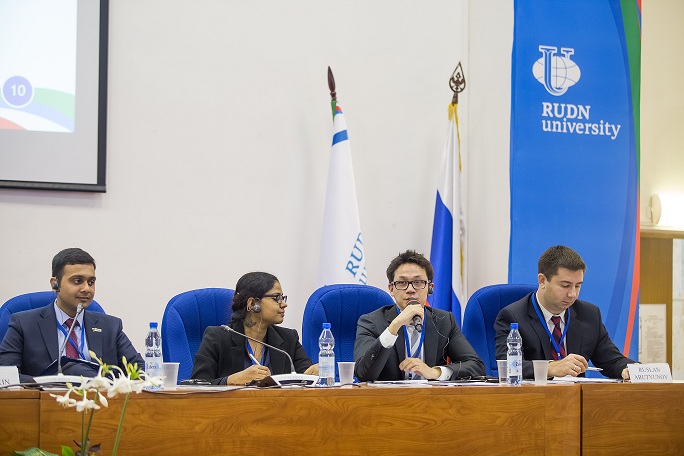Experts of RUDN faculty of Economics determine BRICS education systems monitoring criteria
Larisa Efremova, Vice-Rector for international activity said: «Creating network forms of interaction in education, especially in interregional space is a very complicated challenge. We have to choose the languages of instruction, compare standards and find something in common in curricula … It all takes common approaches and criteria. RUDN has been studying statistics and national priorities in educational systems».
RUDN specialists have elaborated methods of forming unified indexes of education statistics in BRICS countries after analyzing dozens of indicators: number of graduates, population size of this age category, data about entrants, average duration of studies, student-teacher ratio etc. They also revealed different priorities countries have – Brazil, India and SAR want to improve population literacy, while China and Russia concentrate on education informatization. BRICS countries’ graduates have huge potential – Brazil, Russia, India and China train more than half engineers of the world.
Experts have come to the conclusion that all levels of education need harmonization – from pre-school to postgraduate since there are a lot of discrepancies. Among them – different study period at school (11-12 years), statistical gaps, different currencies in financial reports etc.
RUDN economists gave recommendations for increasing efficiency of further analysis and solutions. This project gives new impetus to the development of BRICS Network University coordinated by RUDN University.
The obtained results were summarized at the web-seminar with the representatives of BRICS ministries of education and experts. The topicality of research is proved by one of the chapters of BRICS Leaders Xiamen Declaration signed 4 September, 2017, in China.
The project was initiated by the RF Ministry of education and science to implement the Declaration signed at the Moscow meeting of BRICS ministers of education in November 2015.
In honor of the 65th anniversary of the Peoples' Friendship University of Russia named after Patrice Lumumba, the Digital Pre-University Faculty gives a unique opportunity to RUDN foreign alumni to communicate in Russian and their family members to study Russian together with the best professors of RUDN.
The new list of federal innovation platforms (FIP) of the Russian Federation includes 30 new organisations. Among them is Peoples' Friendship University of Russia named after Patrice Lumumba. This became possible thanks to the development of the Digital Pre-University Faculty of RUDN.
December 15, Minsk hosted the IX International Student Olympiad in Human Anatomy. It was attended by 9 teams from Russia and Belarus. Students of RUDN took two 3rd places in the theoretical and practical rounds.

